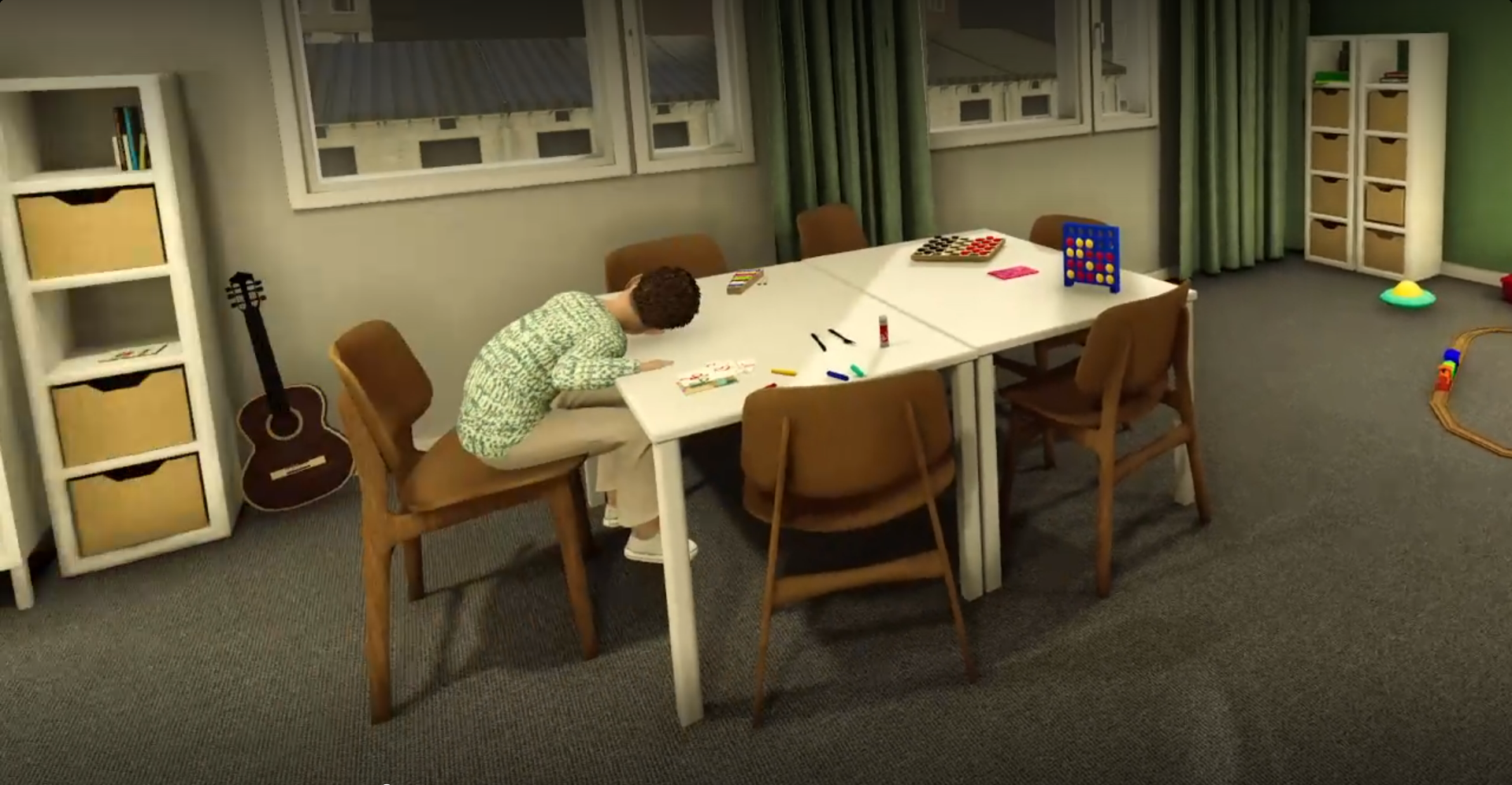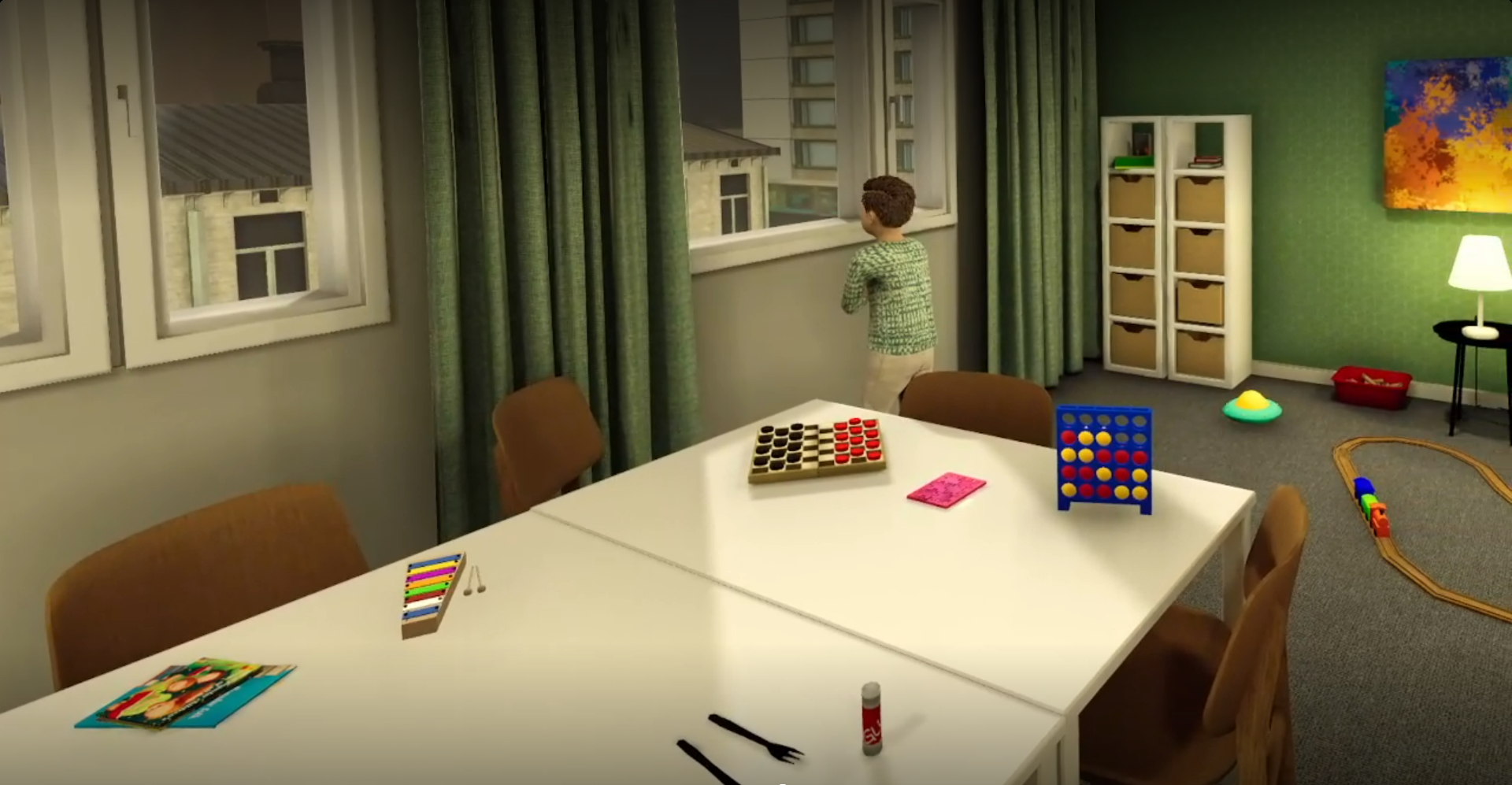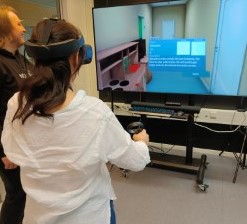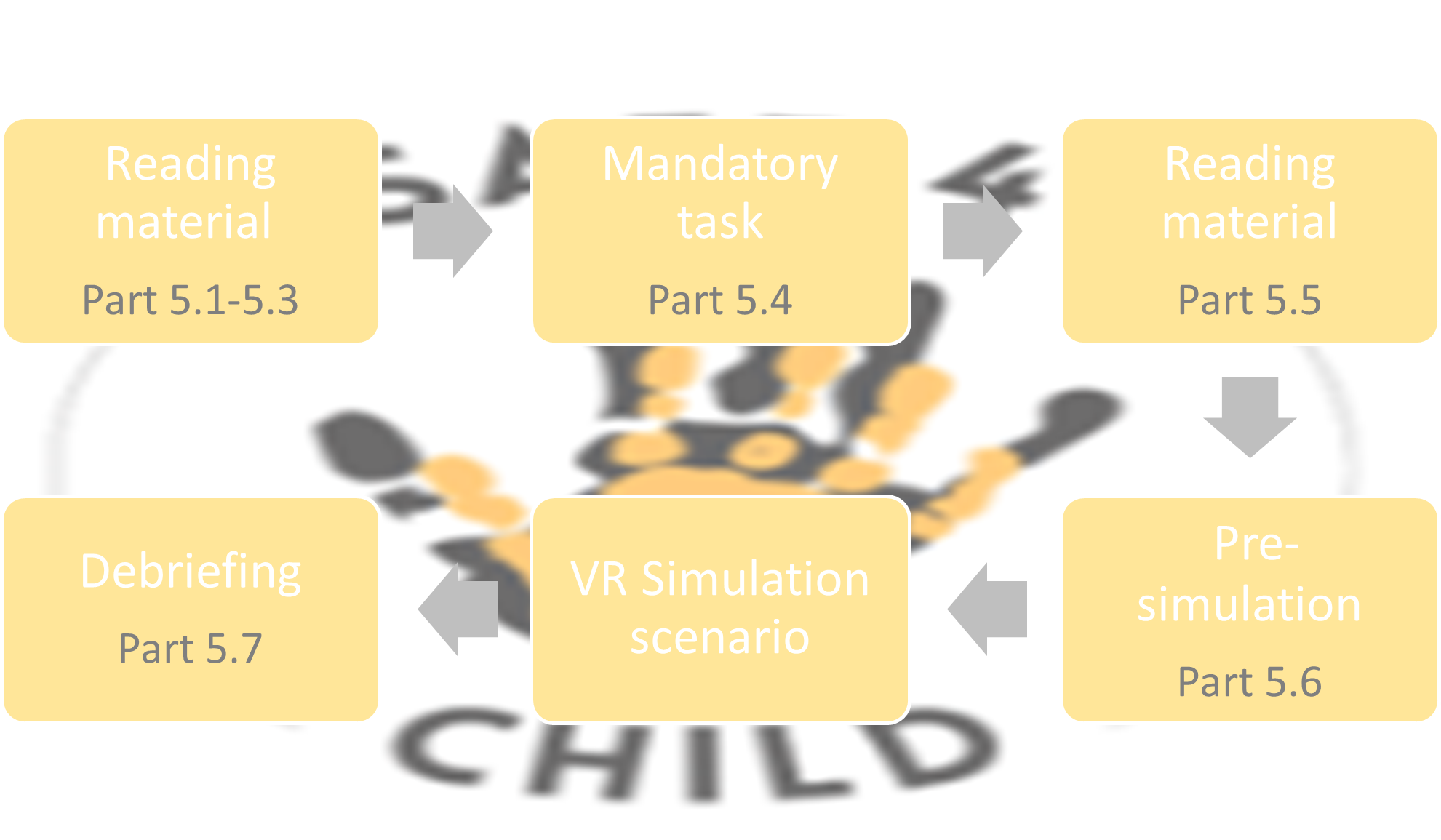General
The Safe4Child is an open access online course with VR simulation scenario. The online course (5cr) and VR simulation scenario have developed in Safe4Child project with the following partners: Turku UAS (Finland) as the project leader, HAW(Germany), UCC (Ireland) and MU-PLOVDIV (Bulgaria). And the project is in funded by Erasmus + Strategic Partnership for vocational education and training, The project consortium will develop high fidelity simulation virtual platform that works with VR glasses.
Practicing challenging situations virtually with VR glasses provides a good method and is a safe environment for frontline workers and nursing students to train trauma focused care for child aggression management. Scenarios are very authentic and provides “a real-life experience” in virtual reality. The Safe4Child project has four main objectives as: 1) to develop a trauma focused framework for managing aggressive child and adolescent in psychiatric and residential units; 2)to develop an online course (5ect); “Safe4Child-trauma focus care for child aggression management” with course handbook; 3) to develop technical high fidelity virtual reality environment with user manual for Safe4Child-trauma focus care simulations; 4) to develop validated Safe4Child-trauma focus care implementation guide for extended target groups that includes sustainable and transferable information on project study results. These will contribute to lifelong learning (LLL),open education and innovative practices in a digital era. The project uses innovative pedagogies and digital methods for teaching and learning. Read more : https://safe4child.turkuamk.fi/









